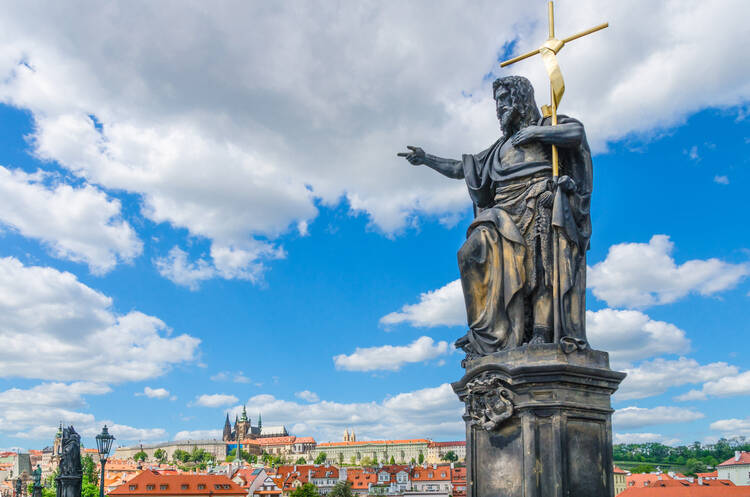A Reflection for the Memorial of the Passion of St. John the Baptist
When he heard him speak he was very much perplexed,
yet he liked to listen to him. (Mk 6:20)
Today’s Gospel may be the greatest (short) story ever told.
The Passion of John the Baptist is recounted in 12 verses in the Gospel of Mark. That’s 313 words, just a touch longer than Lincoln’s Gettysburg address. Like most of Mark’s Gospel, the language is straightforward and to the point, sparing adjectives and adverbs. Compare that to the Passion of Christ in the Gospel of John. Enough said.
As an editor, I marvel at the economy of the story-telling. One’s imagination is left with a great space to wander. And the conclusion is better than anything you can find in “Game of Thrones.” A dance, a promise, a head on a platter.
But what most drew me in, at least in this reading, was not that infamous scene, but these words:
When he heard him speak he was very much perplexed,
yet he liked to listen to him.
Herod arrested John, but he did not kill him because he was a “righteous and holy man.” He did not always understand what he said, but he liked to hear him talk anyway.
When do we allow God to speak through us? When do we put aside our own intellect and speak from the heart about the ways God is at work in our lives in ways both consoling and challenging?
What did John say that drew Herod in? What was it about John that attracted not just Herod but others?
The answer can be found, perhaps, in today’s first reading from St. Paul.
Paul was another great preacher and prophet who attracted a large following. And Paul tells us today that he did not convince people with his wisdom, but with something else:
I came to you in weakness and fear and much trembling,
and my message and my proclamation
were not with persuasive words of wisdom,
but with a demonstration of spirit and power,
so that your faith might rest not on human wisdom
but on the power of God.
Paul did not try to outsmart God. He did not over-intellectualize. He did not lead with the head, but the heart, laying himself open to the people of Corinth, letting God speak through him.
One imagines it was the same way with John. He did not do small talk. He called people to repentance, speaking plainly and without fear, even when it got him in trouble. Even when they didn’t like what he was saying, his listeners could not turn away; something about his message and the way he delivered it made it convincing even when it was unwelcome news to those hearing it.
When do we allow God to speak through us? When do we put aside our own intellect and speak from the heart about the ways God is at work in our lives in ways both consoling and challenging?
I suspect it is something we could all practice a little more.







